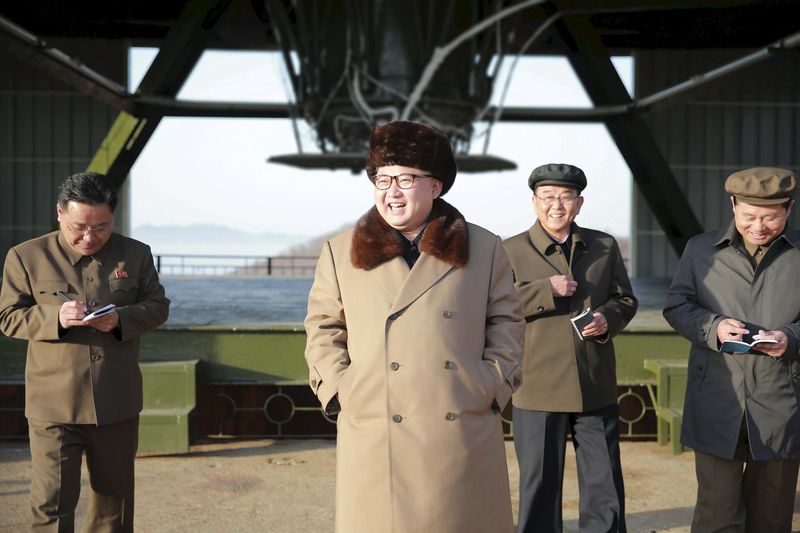SEOUL (Reuters) - North Korea, which conducted a fourth nuclear test in January in contravention of U.N. Security Council resolutions, can learn from a deal struck between Iran and world powers to freeze its nuclear programme, U.S. Deputy Secretary of State Antony Blinken said on Tuesday.
North Korea, which regularly threatens the United States and rich, democratic South Korea, also conducted a long-range rocket launch in February, defying U.N. sanctions.
The Security Council last month expanded those sanctions aimed at starving North Korea of funds for its weapons programme on a resolution drafted by the United States and China.
"Iran made a fundamental choice. It decided to freeze and roll back its nuclear programme and allow inspectors to come in and create the time and space to see if we could agree a comprehensive agreement," Blinken told reporters in Seoul.
Iran and six world powers clinched the nuclear agreement in July 2015, which allowed for the easing of sanctions imposed by the United States, European Union and United Nations in return for Tehran curbing its nuclear program.
"It's our hope that the DPRK will be inspired by that example," said Blinken, speaking after a meeting with his Japanese and South Korean counterparts.
DPRK stands for Democratic People's Republic of Korea, North Korea's official title.
Recent diplomatic progress between the United States and Cuba and Myanmar demonstrated U.S. willingness to engage with countries like North Korea, Blinken said.
"If a country, even one with which we've had the most profound differences, is prepared to engage seriously and credibly in answering the demands of the international community, we are also prepared to engage," Blinken said.

Blinken said on Monday the United States would respond strongly in the case of a further North Korean nuclear test, days after the North's failed attempt to launch what the United States believes was an intermediate-range ballistic missile.